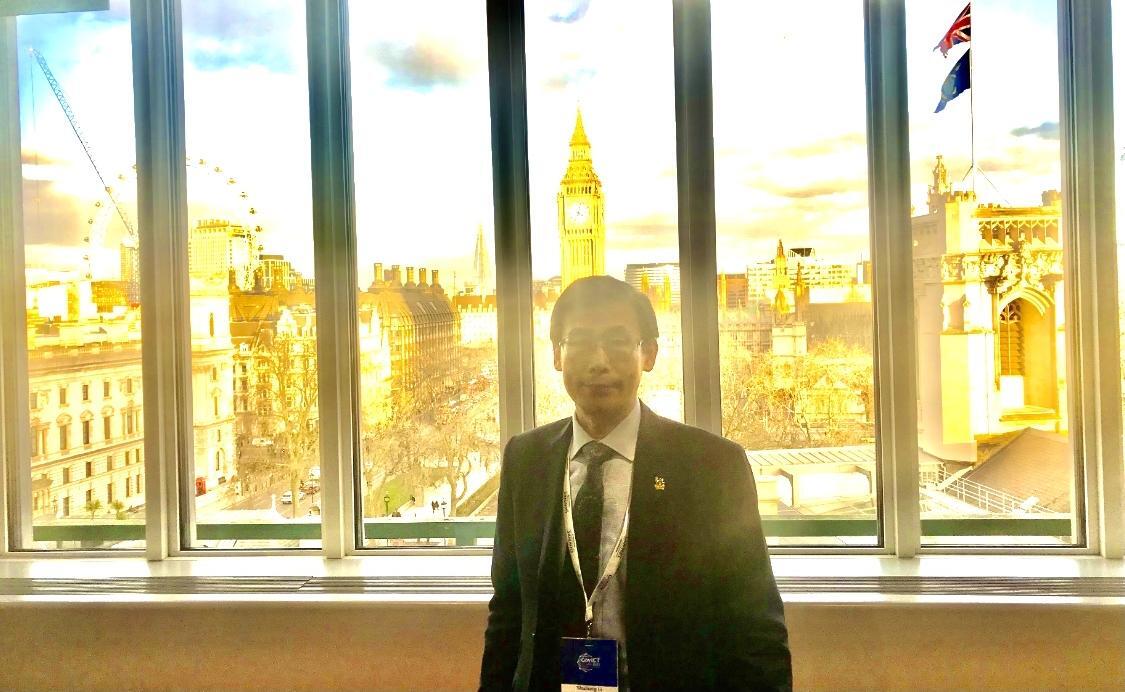
Dr. Stephen Law
University of Oxford, UK
Biography: Dr Stephen Law is currently Director of the CertHE and Director of Studies, Philosophy at Oxford University Department of Continuing Education. He was previousl Reader and Head of Department at heythrop College, University of London. He holds B.Phil and D.Phil degrees from The University of Oxford, where he held several lectureships and a three year stipendiary Junior Research Fellowship. He has published research in metaphysics, philosophy of language, later Wittgenstein and philosophy of religion. He is perhaps best-known for his popular introductory books on Philosophy, including The Philosophy Gym: 25 Short Adventures in Thinking.

Prof. William Hurst
Wageningen University & Research, Netherlands
Biography: Dr. Hurst is an Associate Professor in Data Science and eXtended Realities in the Information Technology Group and Head of the Social Creative Technologies Lab at Wageningen University in the Netherlands. With over 100 international publications, his research spans a wide range of areas, including data science, creative technologies, critical infrastructures, simulation, and 3D graphics. Dr. Hurst’s work focuses on the intersection of emerging technologies and their applications in real-world problems, exploring how XR can enhance fields such as education, agriculture, and environmental sustainability. In 2024, he led several grant-funded projects, including pioneering work on virtual reality for data science education, gamification techniques for agricultural applications, and the development of software for immersive environments. His educational background includes a Postgraduate Certificate in Higher Education, a PhD in Computer Science, an MSc in Web Computing, and a BSc (Hons) in Product Design.

Prof. Hua Dai
California State University Channel Islands, USA
Biography: Hua Dai is a Professor of Management Information Systems at Martin V. Smith School of Business & Economics of California State University at Channel Islands, USA. Her research interests include electronic commerce, eService, big data and business analytics, blockchain and metaverse, outsourcing, IS cross-cultures, and recently, AI applications in business. Dr. Dai’s research has been published in European Journal of Information Systems, Information & Management, Decision Support Systems, The Data Base for Advances in Information Systems, Electronic Markets, ACM Transactions on Software Engineering and Methodology, Journal of Computer Information Systems, Journal of Electronic Commerce Research, among others.

Professor Dr Shuliang Li (李树良)
Fellow (lifelong) of the British Computer Society; Director and Chairman of Loxbridge High-Tech Forum, United Kingdom (https://loxbridge3i.co.uk);
Having held the posts as a Reader & Departmental Research Leader in the UK, and a distinguished & Sichuan 100 Talents professor in China
Loxbridge High-Tech Forum, United Kingdom
Education and Professional Training
Dr Li received his education and professional training from: Haiyang First High School (Shandong, China); Southwest Jiaotong University (China); the University of Edinburgh (UK); the University of Bedfordshire (UK); the University of Oxford (UK); the University of Cambridge (UK); Harvard University (USA); the University of Westminster (UK); Nvidia (USA); Meta (USA); and ARM Cambridge (UK).
Publications
Dr Li has authored and co-authored more than one hundred refereed journal articles, research papers, books, and other scholarly items. His publications have appeared in the international journals including Decision Support Systems, European Journal of Marketing, Expert Systems with Applications, Intelligent Systems in Accounting, Finance and Management, Marketing Intelligence and Planning, Industrial Management & Data Systems, International Journal of Management and Decision Making, Mathematics, and Chinese Journal of Management Science, among others. He has also contributed numerous papers to conference proceedings published by IEEE. His research outputs have been widely downloaded and cited internationally.
Textbook Recognition
Two pages of Dr Li’s research were included in the renowned textbook Decision Support Systems and Intelligent Systems (7th edition, Prentice Hall International, 2005).
Conference leadership
Dr Li has chaired more than thirty international academic and research conferences, with proceedings published by Springer, ACM, and IEEE, and indexed by Ei Compendex, Scopus, and Google Scholar.
Research Excellence
Recognised for sustained international research excellence, Dr Li contributed to the UK Government’s Research Assessment Exercises (RAE) 2001 and 2008, and the Research Excellence Framework (REF) 2014.
Teaching and Supervision
Over the course of his academic career, Dr Li has taught and supervised more than 20,000 undergraduate, postgraduate, and doctoral (PhD) students across the UK, China, and other countries worldwide.
Title of Speech: From technology & models to intelligent civilisation: AI, Computing, and the Map for UHI
Abstract: This keynote speech proposes and structures AI as the transition from the technology & model waves to the future stage, high level and top layer, where artificial intelligence, artificial general intelligence (AGI), in particular, and smart robots will get embedded in daily life and systems: daily life, science, engineering, industries, entertainment, healthcare, transport, government, creative work, education. We link real signals of this great shift or change with the future. Firstly, Elon Musk’s interview discussions about AI abundance and Universal High Income (UHI) highlight how the economy of work could be impacted if robotics and AI accelerate as predicted. Secondly, NVIDIA shows accelerated computing and the compute flywheel driving the era to the next-generation chip roadmap pushing AI into real-world labs and applications. Thirdly, Arm Cambridge partly represents the UK’s strategic position in energy-efficient compute, crucial for scaling AI from cloud to edge while maintaining power and cost to be more sustainable. Fourthly, Google and IBM quantum computers and hybrid quantum–classical–AI will expand and accelerate the speed and frontier of feasible computation for civilization and will also reshape the future economies. Fifthly, large Language Models (LLMs) such as GPT, as popularised through ChatGPT, represent a major step towards widely accessible cognitive tooling for future civilisation, that will support human learning, creativity and problem-solving at scale, assisting with the more connected and informed society and communities. The new era of AI AI and AGI as the foundation of intelligent civilisation Musk, AI & AGI, Economy, work and UHI Nvidia GPUs, compute flywheel and the opportunities The UK and ARM Cambridge perspective Google and IBM quantum computers LLMs and future civilization Risks, trust, ethics and governance.

Dr. Yu Zhao
Tokyo University of Science, Japan
